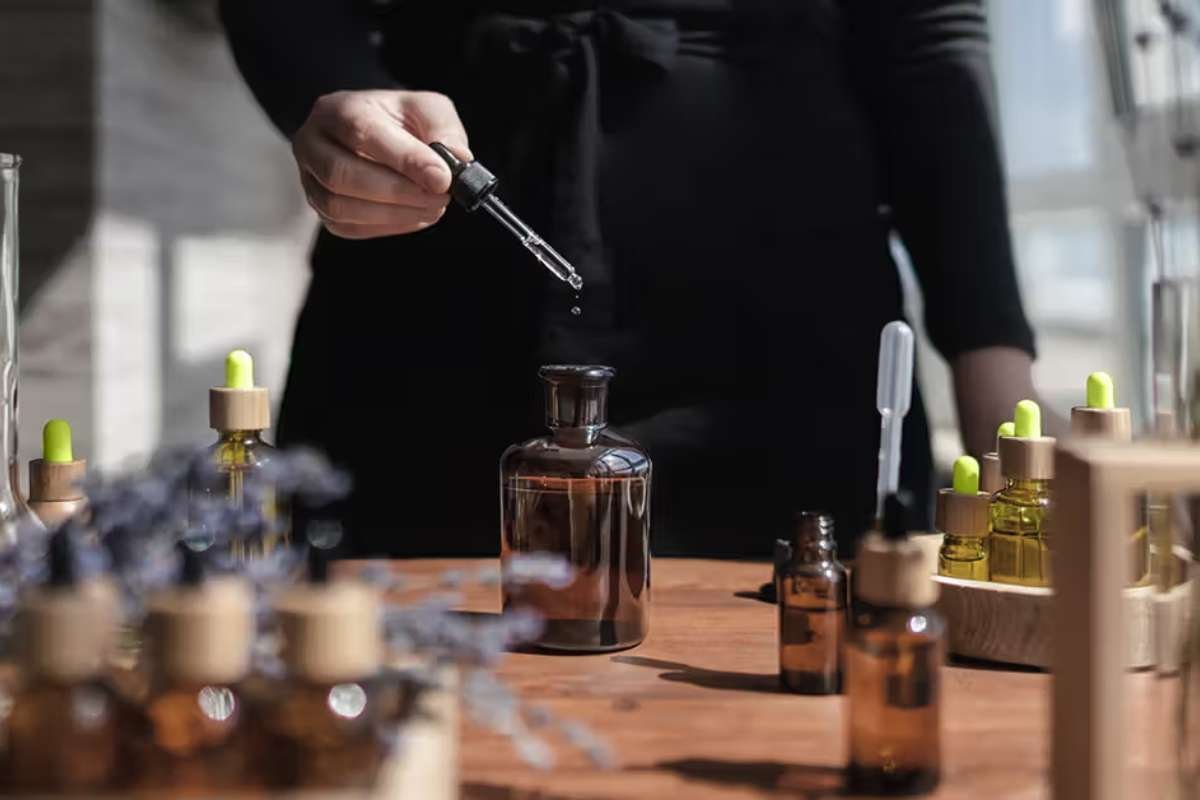Depression is more than just feeling sad. It’s a constant feeling of emptiness, tiredness, and losing interest in life that can affect your thoughts, actions, and even your body. While serious depression often needs help from doctors, many people also look for natural ways to ease their symptoms. Luckily, there are several depression home remedies supported by science that can help improve your mood and support your mental health.
In this article, we talk about natural and effective remedies you can try at home. These methods don’t replace professional treatment but can be a helpful addition, especially for people with mild to moderate depression or those wanting to keep their emotions balanced.
Understanding Depression: A Silent Epidemic
According to the World Health Organization (WHO), over 280 million people worldwide live with depression. It affects individuals across all age groups, impacting productivity, relationships, and physical health. Depression often manifests with symptoms such as:
- Loss of interest in daily activities
- Changes in appetite or sleep patterns
- Low energy or fatigue
- Feelings of worthlessness or guilt
- Difficulty concentrating
- Thoughts of self-harm or suicide (in severe cases)
It’s crucial to consult a healthcare professional for diagnosis and treatment. However, many people also benefit from natural self-care strategies that promote mood regulation, reduce stress, and enhance overall mental well-being.
1. Exercise: Nature’s Antidepressant
Physical activity is one of the most researched depression home remedies. Regular exercise increases the production of endorphins—our body’s natural mood elevators. It also boosts serotonin and dopamine, neurotransmitters often linked to feelings of pleasure and motivation.
- Even simple activities like:
- A 30-minute brisk walk
- Yoga or tai chi
- Dancing to your favorite playlist
- Cycling or swimming
- …can make a significant difference in mood and mental clarity.
- A 2018 study published in The Lancet Psychiatry found that people who exercised regularly experienced 43% fewer days of poor mental health compared to those who didn’t exercise.
2. Mindfulness and Meditation: Training the Brain for Peace
Mindfulness meditation involves focusing on the present moment without judgment. Practicing it regularly has shown positive effects on emotional regulation and stress reduction, both crucial in managing depressive symptoms.
- Apps like Headspace or Calm can help beginners start short daily practices. Techniques like:
- Deep breathin
- Guided visualization
- Body scans
- …can calm the nervous system and promote a feeling of inner stability.
- According to a meta-analysis in JAMA Internal Medicine, mindfulness meditation programs significantly improved symptoms of anxiety, depression, and pain.
3. Balanced Diet: Feeding the Mind
What we eat has a direct impact on brain function. Nutrient deficiencies—particularly in vitamin D, B vitamins, magnesium, and omega-3 fatty acids—have been linked to depressive symptoms.
- Incorporate mood-boosting foods like:
- Fatty fish (salmon, sardines)
- Leafy greens (spinach, kale)
- Nuts and seeds (especially walnuts and flaxseeds)
- Whole grains (brown rice, oats)
- Fermented foods (yogurt, kimchi, kefir)
- Avoid processed sugar and excessive caffeine, which can cause mood crashes.
- Making small dietary adjustments can significantly support other depression home remedies, enhancing their effectiveness by improving overall brain health.
4. Sunlight and Vitamin D: The Sunshine Effect

- Exposure to natural light is a free and powerful mood enhancer. Sunlight triggers the release of serotonin in the brain, which helps boost mood and focus. It also aids in the production of vitamin D, crucial for mental health.
- Spending just 15–30 minutes daily in natural sunlight, preferably in the morning, can improve symptoms of depression. For those living in less sunny climates, light therapy lamps or vitamin D supplements (after medical advice) can be useful alternatives.
5. Sleep Hygiene: Restoring Mental Balance
Lack of sleep can exacerbate depression symptoms. Creating a calming nighttime routine and ensuring quality rest is among the most vital depression home remedies.
- Try these tips:
- Stick to a consistent sleep schedule
- Avoid screens an hour before bed.
- Keep your bedroom dark and cool.
- Limit caffeine and alcohol intake.
- Use calming teas like chamomile or lemon balm.
- The connection between sleep and mood is strong; when you sleep better, you tend to think clearly and handle stress more effectively.
6. Herbal Remedies: Nature’s Support System
Certain herbs have been traditionally used to support mental health. While not a replacement for therapy or medication, they may help in mild cases.
- Popular options include:
- St. John’s Wort – Shown to be effective for mild to moderate depression in some studies (check with your doctor due to potential drug interactions)
- Ashwagandha – An adaptogen that helps the body resist stress
- Rhodiola Rosea – May reduce fatigue and boost mental performance.
- Lavender and Chamomile – Promote relaxation and better sleep
- Always consult a healthcare provider before starting any herbal supplements, especially if you are on medication.
Similar Articles:
7. Journaling and Expressive Writing
Writing down your thoughts and emotions can provide a powerful release and help you gain clarity. Journaling is a low-cost, accessible tool and a therapeutic technique recommended by many mental health experts.
- Start with:
- Gratitude lists
- Mood tracking
- Writing about difficult emotions
- Reflection prompts like “What made me feel low today?” or “What do I wish I had more of?”
- This self-awareness practice not only helps with emotional regulation but also aligns well with other depression home remedies by allowing you to notice patterns and triggers.
8. Social Connections and Support Networks

Depression often leads to isolation, which worsens the condition. Reaching out—even in small ways—can have a positive impact. While it may feel difficult, maintaining a human connection is one of the most underrated home remedies for emotional distress.
- Call a trusted friend or family member.
- Join a local support group or an online community.
- Volunteer (helping others can boost your mood)
- Attend social events, even if briefly
- Human connection is a core component of mental wellness. It reminds us we’re not alone in our struggles.
9. Aromatherapy and Sensory Support
Aromatherapy uses essential oils to support emotional health. Scents like lavender, bergamot, frankincense, and sandalwood have shown calming and mood-lifting effects.
- Ways to use:
- Diffusers
- Aromatherapy roll-ons
- Scented candles or bath oils
- Pair this with calming music or nature sounds for a complete sensory experience that can ease anxiety and improve mood.
10. Limiting Screen Time and Digital Detox
Consuming too much news, social media, or digital stimulation can negatively affect mental health. Excessive scrolling often leads to comparison, overstimulation, or anxiety.
- To reset:
- Set screen-free hours each day
- Keep devices out of the bedroom.
- Replace screen time with offline hobbies (painting, reading, puzzles)
- Unfollow or mute accounts that trigger negative emotions
- Being mindful of your digital intake can create more space for other depression home remedies to work effectively.
When to Seek Professional Help?

While home remedies can be valuable, they are not a replacement for medical care, especially in moderate to severe depression. If you experience persistent sadness, suicidal thoughts, or an inability to function daily, it’s important to seek help from a licensed therapist, psychiatrist, or mental health professional.
Organizations like the National Alliance on Mental Illness (NAMI), Mental Health America (MHA), and local counseling centers offer free and low-cost resources.
Similar Articles:
Conclusion
Depression is a very personal and often hidden struggle, but you don’t have to face it alone or without help. With the right mix of professional support and self-care, healing is possible and can last. The depression home remedies mentioned above are tools—not cures—that can help you take back control, lift your spirit, and find hope even during tough times.
Small, regular actions—like taking a walk outside, writing in a journal, or making a simple phone call—can remind you that hope and strength are still there. Start with one or two of these steps and add more as you go. Your mental health is important.
1. Are depression home remedies safe for everyone?
Most are safe for mild symptoms and general well-being, but always consult your healthcare provider if you’re already on medication or have a diagnosed mental health condition.
2. How long do natural remedies take to show results?
It varies. Some may feel better in a few days (like after regular exercise), while others (like dietary changes or journaling) may take weeks to show consistent improvement.
3. Can I combine home remedies with therapy or medication?
Yes, many people find a combination of therapy, medication, and depression home remedies to be the most effective holistic approach.
4. What’s the first home remedy I should try?
Start with something simple, like a 15-minute walk, sunlight exposure, or writing in a journal daily. Choose based on what feels manageable.
5. Is it normal to feel overwhelmed when starting self-care?
Absolutely. Take it one step at a time. Even small changes can create powerful ripple effects on your mood and energy.







